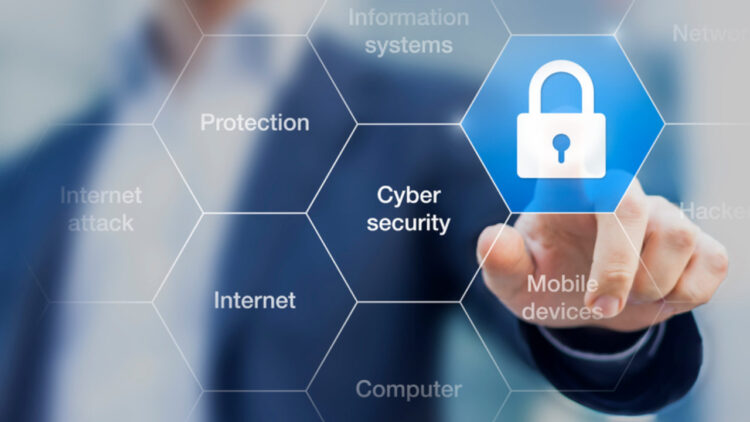No matter how small your business is, you are certainly present on the Internet. Today, it is necessary to have a website, e-commerce store, profiles on social networks and everything else that until 10 years ago was reserved only for large companies. But with the development of the Internet, both in terms of speed and availability, it is simply necessary for small businesses to be online too. This allows access to a potentially much larger clientele and everything else that can improve a business so we are sure you also invested in that.
But it comes with a price. That price is a cyber-security issues. Today, you are much more likely to encounter cyber criminals than a burglar to steal something from your office. So even though your business is small, time and money must be invested in protection against cybercrime. For many small to medium-sized businesses, this is a big blow to the budget and that is why they often try to save on it, but it is a big mistake. If hackers breach in your system, they can cause irreparable damage and loss. We will tell you how you can protect your small business against cyber criminals.
Page Contents
1. Use official software versions

Source: zorinos.com
Many software is very expensive and then small business owners decide to use free versions or even pirate versions. While it may seem tempting at first because of the savings, it’s a road to disaster.
Free versions lack many significant features, while the pirate versions are not reliable at all and often contain viruses, not to mention that it is, of course, illegal to use them. Invest money in buying the original versions of all the software you need, because it will pay off in the long run.
2. Update software regularly
This brings us to the next step, which is to regularly update your software. No software is perfect, and hackers are finding ways to take advantage of some vulnerabilities, so developers are also constantly working on upgrades.
These improvements are implemented through the update, and it is up to you to regularly download and install all updates and patches. Never delay or reject updates as this is crucial to your cyber-security. We know it can be boring to waste a few hours while an update is being installed, but it is necessary to update as soon as a new version is available.
3. Train your employees

Source: inc.com
Not even all original software or the best available antivirus programs will help you if your employees are illiterate when it comes to working on a computer. Exactly what employees do is the biggest opportunity for hackers or on the other hand something that will have the biggest positive impact on the cyber-security of your company.
Invest in employee training so they know how to distinguish secure sites, software, emails and everything else from those who are potentially malicious. They also need to know how to create secure passwords and much more. Also, insist that they do not access anything from a business computer that is not closely related to the job, because if they surf the Internet, there is a high chance that they will come into contact with a virus that can wreak havoc in your system. So find a reliable cybercrime prevention course and enroll them.
4. Outsource
Outsourcing of cyber-security tasks may seem like something too expensive for you, but trust us that is not true. First, it will save you a lot of time that you can use for something else, something you know much more about and where you can do a great job which is probably not the case in this field.
Then, you will never be able to protect yourself in the way that professionals can do for you. They have the most modern technologies at their disposal, and above all knowledge and experience. They deal with cyber-security on a daily basis and are familiar with all new types of viruses and anything else that can endanger you. That is why many IT security companies like Cytelligence offer help to small businesses at affordable prices to provide them with a secure cyber environment to work in.
To avoid all the stress and waste of time, we recommend that you outsource this task and let them do everything, from installing and updating software to data storage and the like.
5. Take care of sensitive data

Source: coxblue.com
Some of your data is more important, and some others are not so important, so the most important thing is to focus on sensitive data. That kind of data should back up somewhere, preferably on the cloud. Also, select a few more layers of security to make sure no data breach occurs.
Another tip we have for you is not to keep all sensitive data in the same place, for example on one cloud or one external hard drive. Store them in several places, and even if a problem occurs, you know that you have not lost all the important data but only part of it. Then you will recover much easier, while the loss of all sensitive data can lead to your business ceasing to exist.
And of course don’t forget to back up your data regularly, not once every couple of months.
6. Don’t forget your hardware
A common mistake is to do everything to protect all data and software, and to forget that hardware is equally important. Although cloud technologies have significantly diminished the importance of hardware, because you can access your data from anywhere, you still need to keep your hardware safe.
If you lose it or someone steals it from you, it will come into possession of all sensitive data as if a data breach had occurred on the Internet.
Be careful not to lose hardware, and also set up several layers of protection, such as passwords, so that even if someone steals the hardware, they have a hard time getting to what interests them.
Conclusion:
Cyber-security is just as important to your small business as anything else, so don’t neglect that task. If you do not have the time and knowledge, then outsource it, but it is important that security is always at the highest level.





